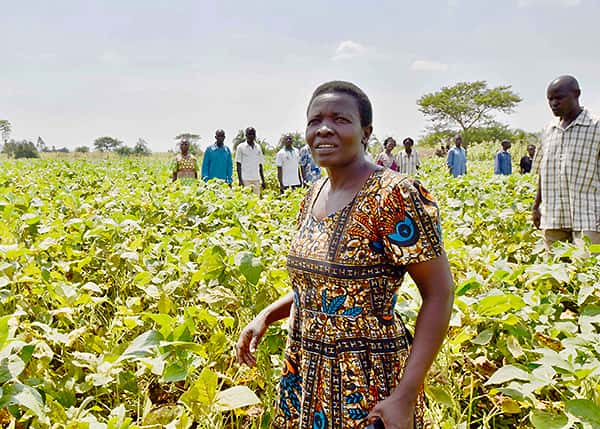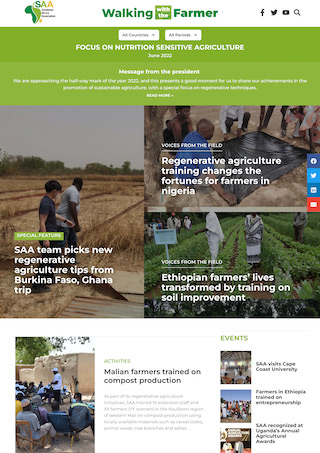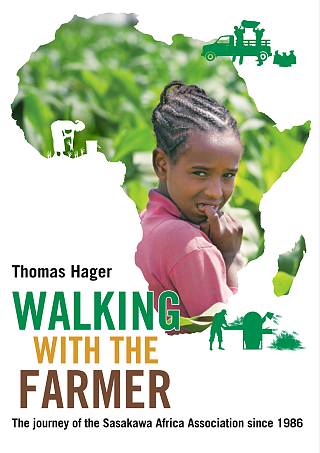In Uganda, agriculture is pivotal to the national economy and people’s livelihoods, with the majority of the population engaged in both subsistence and commercial farming. With favorable conditions such as stable temperatures, fertile soils and two rainy seasons, the sector allows for diverse crop harvests. Crops include staples like maize, cassava, bananas and sweet potatoes, alongside significant cash crops like coffee and tea. However, challenges persist, namely inadequate infrastructure, limited technology access and vulnerability to weather-related risks.
To address these issues, the Government of Uganda and partner organizations have instituted initiatives aimed at promoting sustainable agricultural practices, facilitating access to credit, and providing farmers with training and resources. In recent years, there has been a notable emphasis on value addition and agribusiness to enhance the competitiveness of Ugandan agricultural products in both domestic and global markets. Across the country, agriculture remains a key driver of rural development and poverty reduction.
The Sasakawa Africa Association (SAA) in Uganda, formerly known as Sasakawa Global 2000 (SG 2000-Uganda), was established in 1996 through a Memorandum of Understanding (MOU) between SAA and the Government, facilitated by the Ministry of Agriculture, Animal Industry and Fisheries (MAAIF). The founding goal of SG 2000-Uganda was to catalyze transfer-improved agricultural technologies and practices to enhance food security and household incomes for smallholder farmers. Supported since its inception by core funding from The Nippon Foundation, SAA operates within government extension structures, which it has helped to strengthen by establishing Community Based Facilitators (CBFs). CBFs are selected from farming communities and trained to complement the delivery of extension and advisory services to smallholder farmers.
SAA’s impact and relevance have been repeatedly recognized through the Government's Visionaries Award scheme. These awards are a testament to the program's contributions and its alignment with the national agenda, particularly the Government's aspiration to achieve middle-income status by 2040.
In 2010, SAA underwent a significant transformation, realigning its efforts to adhere to a revised approach focusing on agricultural value chains. While enhancing crop productivity remained a priority, the revamped strategy adopted a more comprehensive approach, placing greater emphasis on aspects like post-harvest management, agro-processing and robust market linkages. Recognizing the vital roles of rural youth, and delivering more inclusive advisory services, particularly for women, also become central to the strategy. Additionally, there was a strong emphasis on bolstering farmer organizations, broadening market access, and fostering public-private partnerships.
Rebranded as SAA-Uganda in 2021, the organization embarked on a transformative journey with its Five-Year Strategy 2021-2025. This strategy aims to support more resilient and sustainable food systems in Uganda, building on past achievements while pursuing new ones.

Key Achievements
- Played a pivotal role in shaping the Plan for Modernization of Agriculture (PMA) and the subsequent formation of the National Agricultural Advisory Services (NAADS).
- Played a pivotal role in shaping the formation of the Africa Forum for Agricultural Advisory Services (AFAAS), and the Ugandan chapter of AFAAS, the Uganda Forum for Agricultural Advisory Services (UFAAS).
- Initiated the development of rural agricultural inputs stockist networks, culminating in the establishment of the Uganda National Agro-Dealers Association (UNADA).
- Spearheaded the NERICA (upland rice) revolution in Uganda in partnership with WARDA, JICA, NARO and NASECO, resulting in a US$20 million reduction in imported rice and generating income for over 450,000 farmers.
- Facilitated the introduction of Quality Protein Maize (QPM) in partnership with CIMMYT, NASECO, NARO and Makerere University, enhancing nutrition for people and livestock in Uganda.
- Spearheaded the establishment of community seed multiplication systems.
- Established and operationalized 13 value chain centers known as One Stop Centers (OSCAs), benefiting over 10,000 members, 57% of whom are women.
- Developed practical curricula for extension agents in collaboration with Makerere University.
- Initiated a collaborative scheme with Japan Overseas Cooperation Volunteers (JOCVs) and an internship program for local and international students.
- Initiated a mobile farmer training/learning and soil testing lab in partnership with K+S GmbH-Germany.
- Pioneered e-extension in partnership with the private sector.















